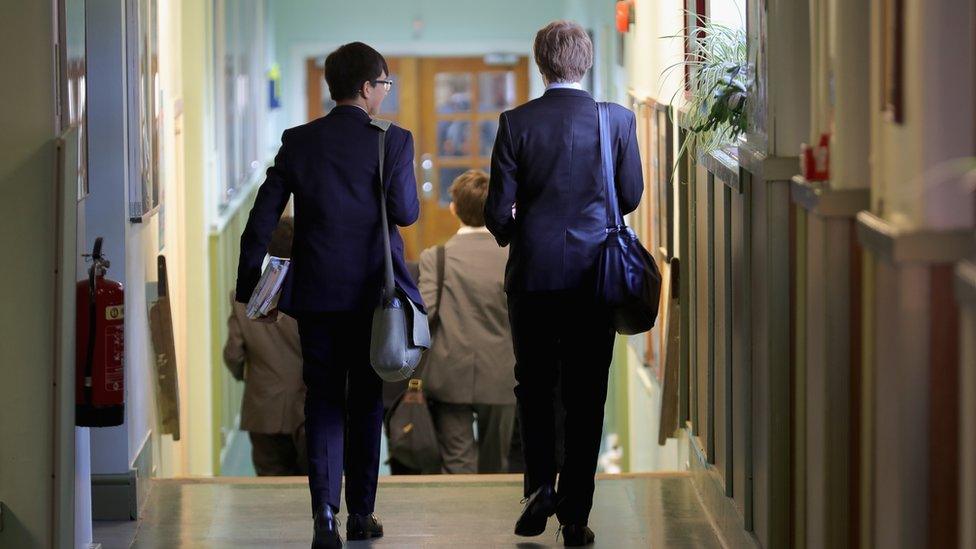New grammars and more selection by faith proposed
- Published

A new green paper is set to propose opening new grammar schools and allowing further selection by faith, BBC Newsnight has learnt.
The consultation document will also propose placing requirements on universities and private schools to enhance social mobility.
The package will be part of Theresa May's attempts to frame her government as one focused on social mobility.
It is expected to be presented on Friday,
The most contentious suggestion in the consultation paper is likely to be that the government should pass legislation to permit new grammar schools. This would be required to overrule the 1998 Education Act, which barred the opening of further grammar schools in England.
To help overcome opposition in the Commons, where some Tory MPs are concerned about the proposals, and the Lords, where the government does not have a majority, the paper is expected to propose changes designed to overcome the historic problems with selective education: grammar areas have tended to have higher educational inequality.
The preferred option in Whitehall is that the schools should dedicate a quota of places to children from poorer backgrounds. Grammar schools may also be required to act as academy sponsors to other schools.
Universities could also be asked to sponsor academies as a condition of being allowed to raise their fees. A similar condition may also be applied to private schools as a condition for their status as charities.
The paper is also currently expected to include a relaxation of the rule that limits oversubscribed new faith schools to only selecting half of their intake by reference to faith. This rule was intended to limit the segregational effects of new faith schools. Officials have said these schools will, instead, be encouraged to do other work to that end.
Downing Street declined to comment on the leak, but made an argument for the abolition of the rule on faith schools in similar terms to an argument made publicly earlier this year by Nick Timothy, one of the prime minister's two chiefs of staff.
He who wrote in January, external that the law "does little to increase the diversity of Jewish, Muslim, Sikh and Hindu schools, because for now at least they are unlikely to appeal to parents of other faiths. But the rule is effectively discriminatory for Roman Catholics: it prevents them from opening new free schools because it is almost certainly against canon law for a Catholic Bishop to set up a school that turned away Catholic pupils on the basis of their Catholicism."
Mr Timothy, a supporter of faith education, argued: "We won't succeed in bringing together our divided communities by pretending to be something we're not, penalising people for what they believe, or trying to turn others into something they do not want to be. We will bring communities together by encouraging people, especially young people, to understand, respect and like one another for what they are."
Chris Cook, external is Policy Editor for BBC Newsnight. He'll have more on this story on Newsnight at 22:30 on BBC Two